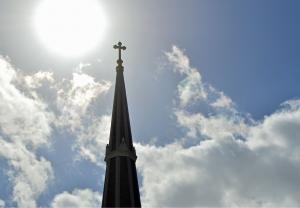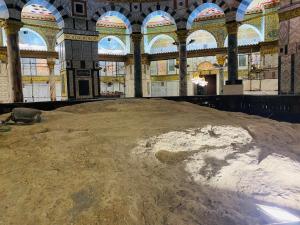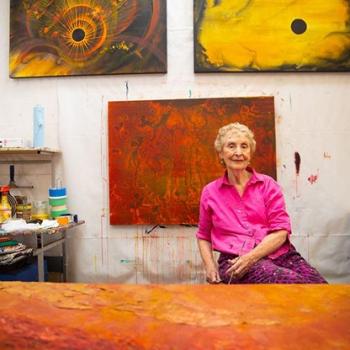By Simran Jeet Singh.
New Year’s Day will mark a new era for a marginalized group of Americans. On January 1, 2015, American Sikhs will host their first-ever float in the Rose Parade.
The first Sikh pioneers came to North America by way of the west coast in the late 1800s, and of the nearly one million Sikhs who have settled in North America, an estimated 250,000 reside in the state of California.
The presence of a Sikh float in our nation’s largest New Year’s Day Parade is long overdue, especially in the state of California that so many American Sikhs call home.
Leaders organizing the Sikh float hope that the fifty million viewers who see the parade will see the Sikh community at the Rose Parade and walk away with a positive feeling about their Sikh neighbors. The float design is inspired by the Stockton Gurdwara, the first place of worship established in 1912 by the American Sikh community. The design will also feature various men, women, and children who continue to make meaningful contributions to this country.
Despite having been in the U.S. for approximately 125 years, and despite being the world’s fifth largest organized religion, the Sikh community has remained largely unknown in America. Signs are showing, however, that the Sikh community is beginning to make a positive imprint in American society. Being included among the diverse communities represented at the Rose Bowl is only one of many such examples.
California Sikhs in particular have made rich contributions to our society. The first Asian American to serve in the U.S. Congress, Dalip Singh Saund, was a Sikh. The inventor of fiber optics, Narinder Singh Kapany, is a Sikh who calls California home, as is Harmeet Kaur Dhillon, the chairwoman of the Republican Party of San Francisco. Dr. Arjinderpal Singh Sekhon, the first Sikh physician to serve as a Colonel in the U.S. Army, currently resides in California as well, as does “The Peach King,” Didar Singh Bains, who is one of the biggest peach growers in America.
While Sikhs have a long and storied connection with California, there have also been serious instances of anti-Sikh violence in this state. In December of 2001, just months after the terrorist attacks of 9/11, two men assaulted Surinder Singh Sidhi in Los Angeles while shouting racial epithets at him. In 2004, a Sikh place of worship (gurdwara) in Fresno, California was vandalized with graffiti saying: “Rags go Home” and “It’s not your country.” In 2010, a Sacramento taxi driver was attacked by passengers who were calling him Osama bin Laden. And on March 6, 2011, in Elk Grove, California, a gunman shot and killed two elderly Sikh gentleman who were out for an evening stroll. On August 5, 2012, a white supremacist opened fire on a Sikh congregation in Oak Creek, Wisconsin, killing six people and injuring several others. This was the most fatal attack on a place of worship since the 1963 bombing of the 16th Street Baptist Church in Birmingham, Alabama. Attorney General Eric Holder described this massacre as a hate crime and an act of domestic terrorism.
For Sikhs, these instances of violence point to the critical need for education and creating awareness. The first step in challenging fear and xenophobia is to confront it head on, with a focus to disrupt the negative assumptions brought out by ignorance.
For Sikhs, educating our neighbors is not a motion through which we go to create awareness. It is a way of actively responding to and guarding against the hate violence that has become an essential part of the American Sikh experience.
Participating in the Rose Parade is a monumental step in that direction, because it sends a message to our American brothers and sisters. Sikhs are an active and integral part of American society, and we are here to work together as one, through good times and bad.
Editor’s Note: Those interested in further understanding Sikhism—its founders, history, beliefs, practices, and more—can learn about it in the Patheos Library materials on Sikhism.
 Simran Jeet Singh is the Senior Religion Fellow for the Sikh Coalition and a Ph.D. Candidate in the Department of Religion at Columbia University.
Simran Jeet Singh is the Senior Religion Fellow for the Sikh Coalition and a Ph.D. Candidate in the Department of Religion at Columbia University.












